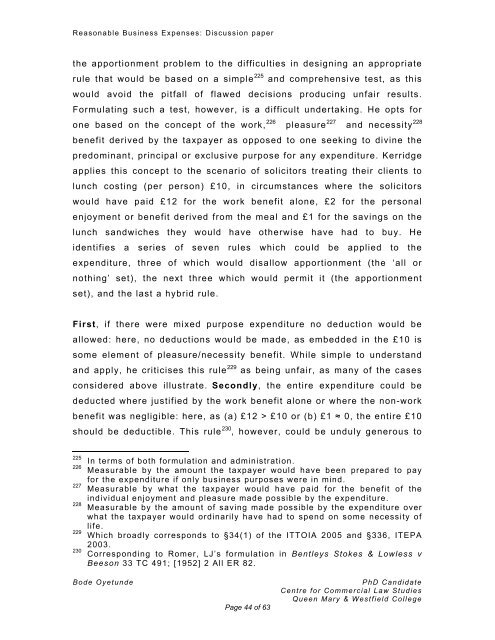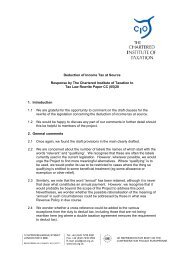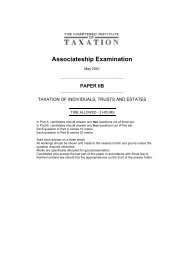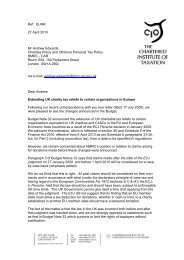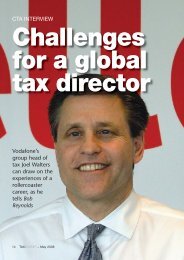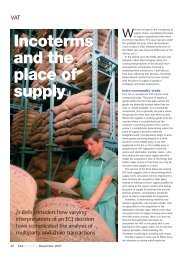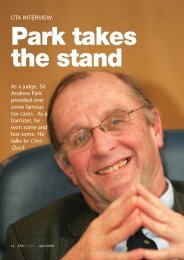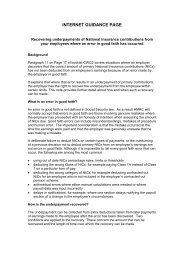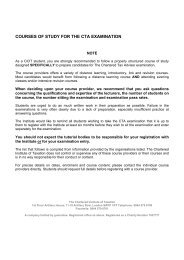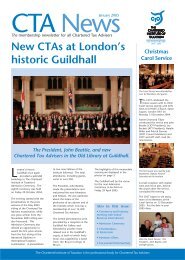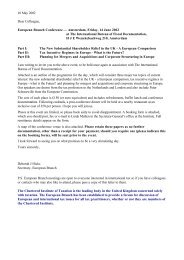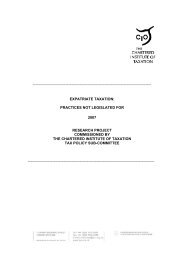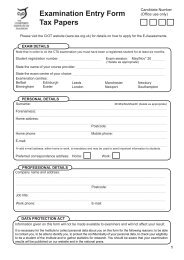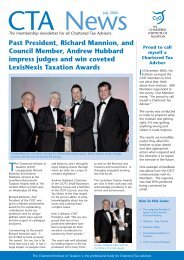Reasonable Business Expense - The Chartered Institute of Taxation
Reasonable Business Expense - The Chartered Institute of Taxation
Reasonable Business Expense - The Chartered Institute of Taxation
You also want an ePaper? Increase the reach of your titles
YUMPU automatically turns print PDFs into web optimized ePapers that Google loves.
<strong>Reasonable</strong> <strong>Business</strong> <strong>Expense</strong>s: Discussion paperthe apportionment problem to the difficulties in designing an appropriaterule that would be based on a simple 225 and comprehensive test, as thiswould avoid the pitfall <strong>of</strong> flawed decisions producing unfair results.Formulating such a test, however, is a difficult undertaking. He opts forone based on the concept <strong>of</strong> the work, 226 pleasure 227 and necessity 228benefit derived by the taxpayer as opposed to one seeking to divine thepredominant, principal or exclusive purpose for any expenditure. Kerridgeapplies this concept to the scenario <strong>of</strong> solicitors treating their clients tolunch costing (per person) £10, in circumstances where the solicitorswould have paid £12 for the work benefit alone, £2 for the personalenjoyment or benefit derived from the meal and £1 for the savings on thelunch sandwiches they would have otherwise have had to buy. Heidentifies a series <strong>of</strong> seven rules which could be applied to theexpenditure, three <strong>of</strong> which would disallow apportionment (the ‘all ornothing’ set), the next three which would permit it (the apportionmentset), and the last a hybrid rule.First, if there were mixed purpose expenditure no deduction would beallowed: here, no deductions would be made, as embedded in the £10 issome element <strong>of</strong> pleasure/necessity benefit. While simple to understandand apply, he criticises this rule 229 as being unfair, as many <strong>of</strong> the casesconsidered above illustrate. Secondly, the entire expenditure could bededucted where justified by the work benefit alone or where the non-workbenefit was negligible: here, as (a) £12 > £10 or (b) £1 ≈ 0, the entire £10should be deductible. This rule 230 , however, could be unduly generous to225226227228229230In terms <strong>of</strong> both formulation and administration.Measurable by the amount the taxpayer would have been prepared to payfor the expenditure if only business purposes were in mind.Measurable by what the taxpayer would have paid for the benefit <strong>of</strong> theindividual enjoyment and pleasure made possible by the expenditure.Measurable by the amount <strong>of</strong> saving made possible by the expenditure overwhat the taxpayer would ordinarily have had to spend on some necessity <strong>of</strong>life.Which broadly corresponds to §34(1) <strong>of</strong> the ITTOIA 2005 and §336, ITEPA2003.Corresponding to Romer, LJ’s formulation in Bentleys Stokes & Lowless vBeeson 33 TC 491; [1952] 2 All ER 82.Bode OyetundePage 44 <strong>of</strong> 63PhD CandidateCentre for Commercial Law StudiesQueen Mary & Westfield College


